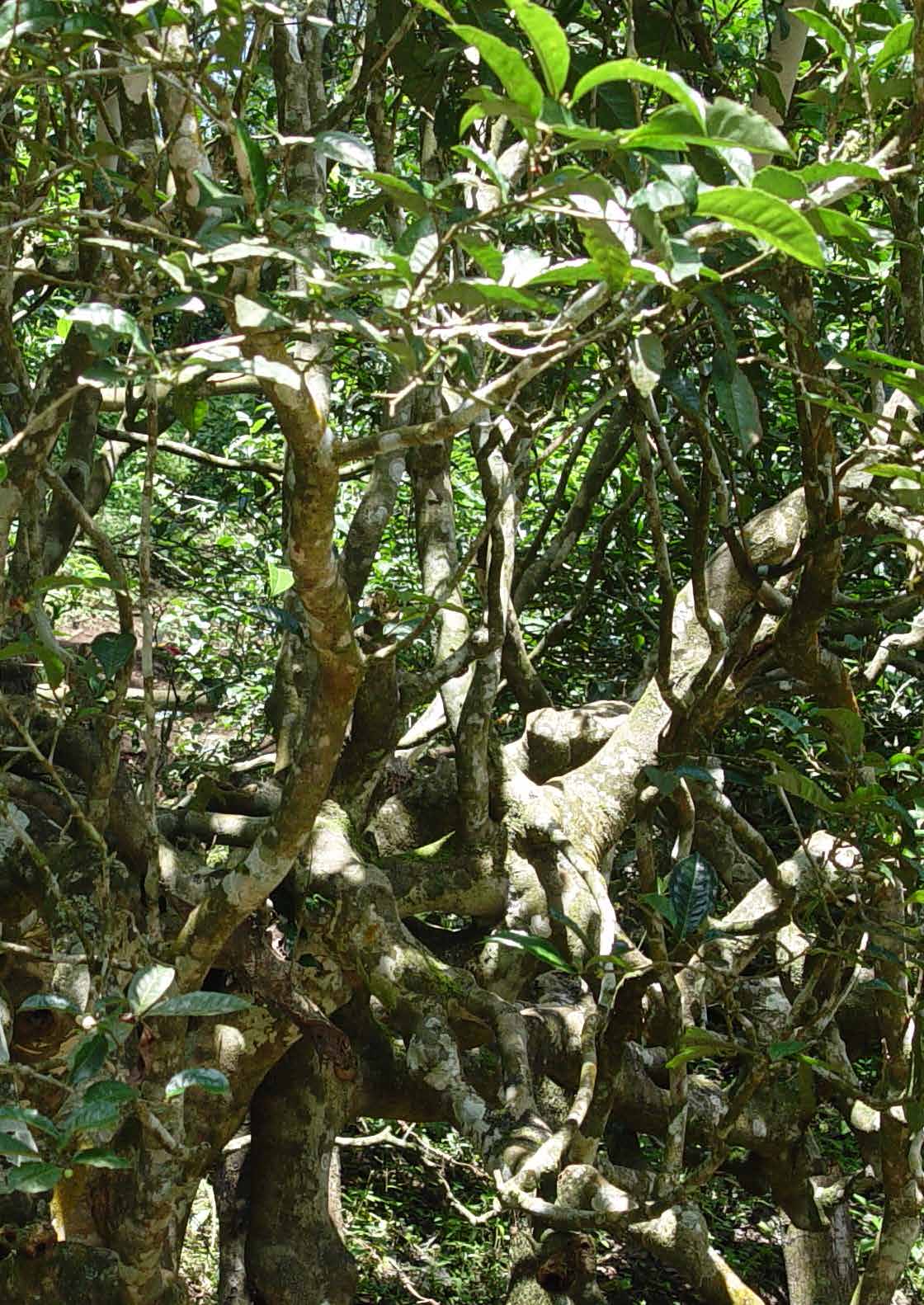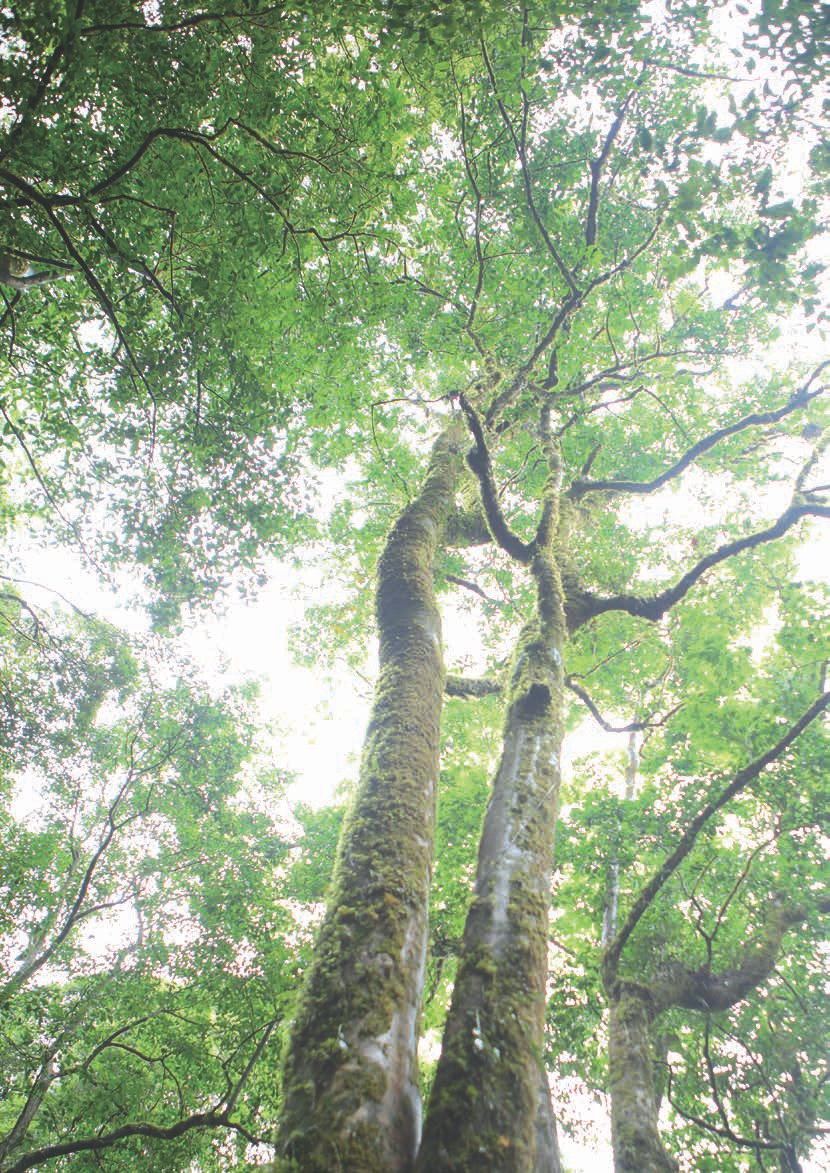
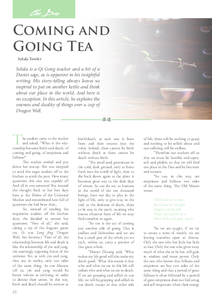 |
|
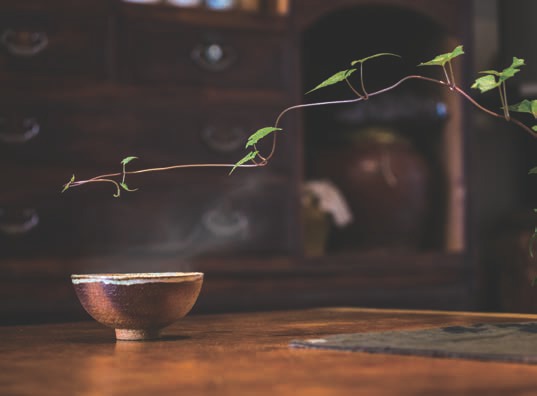
The student came to the teacher and asked, "What is the relationship between birth and death, of coming and going, of emptiness and fullness?"
The teacher smiled and put down her teacup. She was tempted to send this eager student off to the kitchen to scrub the pots. How many questions this one was capable of! And all in one sentence! But instead she thought back to her first days here at the Shrine of the Universal Mother and remembered how full of questions she had been then...
So, instead of sending the inquisitive student off for kitchen duty, she decided to answer her questions: "First of all," she said, taking a sip of the fragrant green tea. (It was Long Jing, Dragon Well, her favorite.) "First of all, the relationship between life and death is like the relationship of yin and yang, the seemingly opposing forces of the universe. Yet, as with yin and yang, they are, in reality, only two sides of the same thing. As our Masters tell us, yin and yang would be better written as yin/yang, in order to denote their union. In this way, birth and death should be written as birth/death, as each one is born from and then returns into the other. Indeed, there cannot be birth without death as there cannot be death without birth.
"The small seed germinates in the cold, dark ground, only to burst forth into the world of light, then to die back down again as the plant it becomes gives way to the dark days of winter. So too do we, as humans in the world of the ten thousand beings, have our day to play in the light of life, only to give way, in the end, to the darkness of death, there to lie easy in the earth, awaiting who knows whatever form of life we may find ourselves in again.
"So too is the act of coming just another side of going. Dao is endless and fathomless and we are but a small part of the whole yet we each, within us, carry a portion of that great whole.
"Master Zhuang said, 'What makes my life good will also make my death good.' What this means is that who and what we are in this life will ordain who and what we are in death. If we are grasping and selfish in our life, we will be grasping and selfish in our death, except in that other side of life, there will be nothing to grasp and nothing to be selfish about and our suffering will be endless. "Therefore our teachers tell us that we must be humble and open, soft and pliable, so that we will find our place in the Dao and be free men and women.
"So too, in this way, are emptiness and fullness two sides of the same thing. The Old Master wrote:
Yield and overcome. Bend and be straight. Empty and be full. Wear out and be new. Have little and gain much.
"As we are taught, if we try to amass a store of wealth, we are leaving ourselves open to thieves. Only the one who has little has little to lose. Only the one who gives away much of what she or he has, will gain in wisdom and inner power. Only the one who knows that fullness and emptiness are but two sides of the same thing and that a period of great fullness is often followed by a period of great emptiness does not feel smug and self-important when their energy cycle is high, and also does not feel despair and desperation when their energy cycle is low. We must always remember that the high is built upon the low.
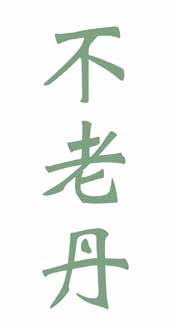
"This teacup I hold", she said, holding up the cup to the light, "is now empty while a moment ago it was full. When it is full I enjoy the rich taste of the tea and then when it is empty I hold it up to the light and enjoy the lovely lace of cracks that have built up in it over the many years I have been using it. Either way, I can enjoy and savor its place in my life.
"As the Old Master has said:
In the world of learning, everyday something is added But in the world of Dao, everyday something is let go.
"In this way we learn and experience, in our very beings, that the seemingly opposing form of death and birth, coming and going, and emptiness and fullness are but steps along the way on the Celestial Path of Dao. We give thanks for the many lessons we are given, we give thanks for the opportunity to learn and grow within our spiritual being, and lastly we give thanks to be able to fully appreciate and honor both our birth and our death, all our comings and goings, and our experience of being full and of being empty."
So saying, the teacher held her teacup out to the student to be filled once again with good, rich Dragon Well tea...

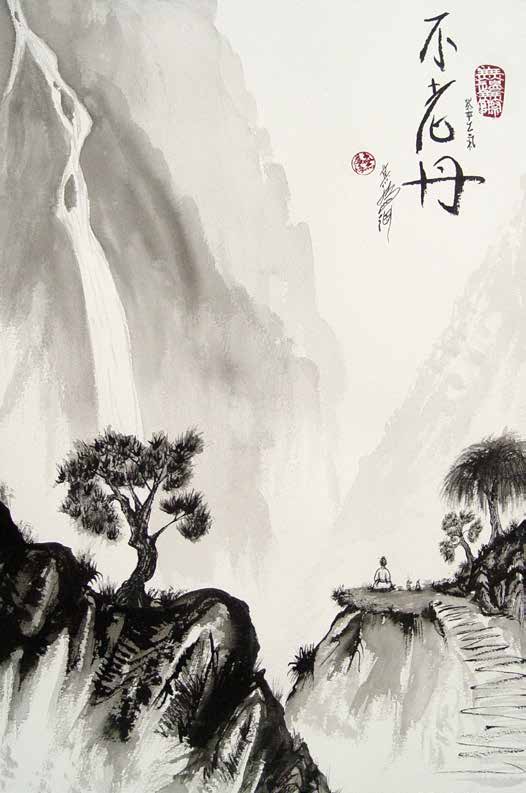
Here are some old tea trees:
